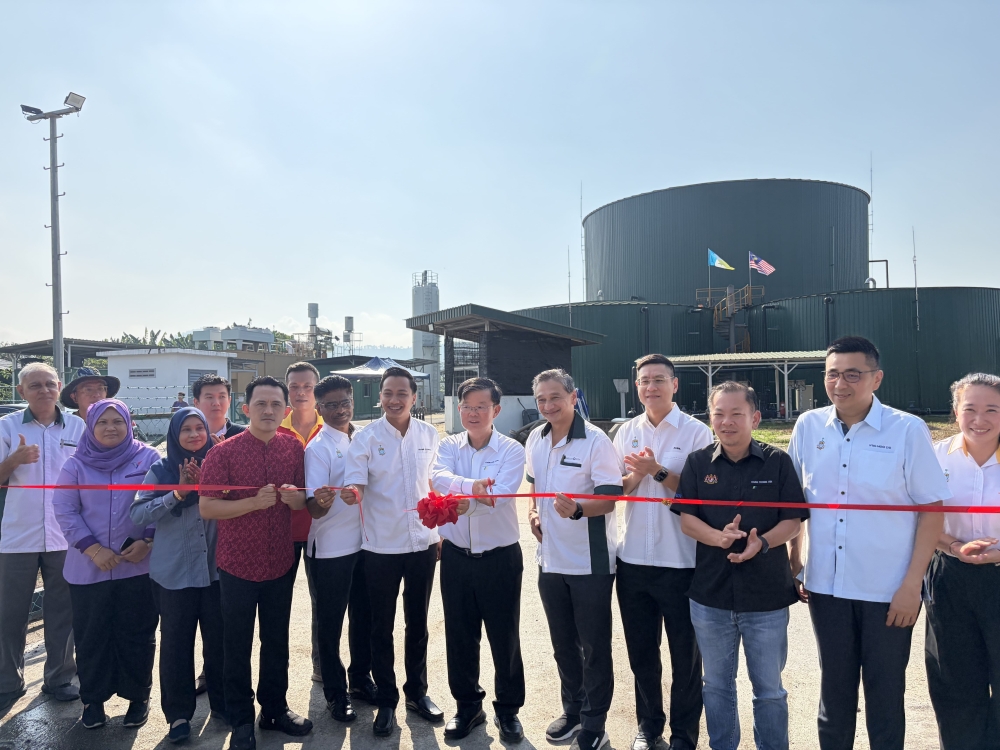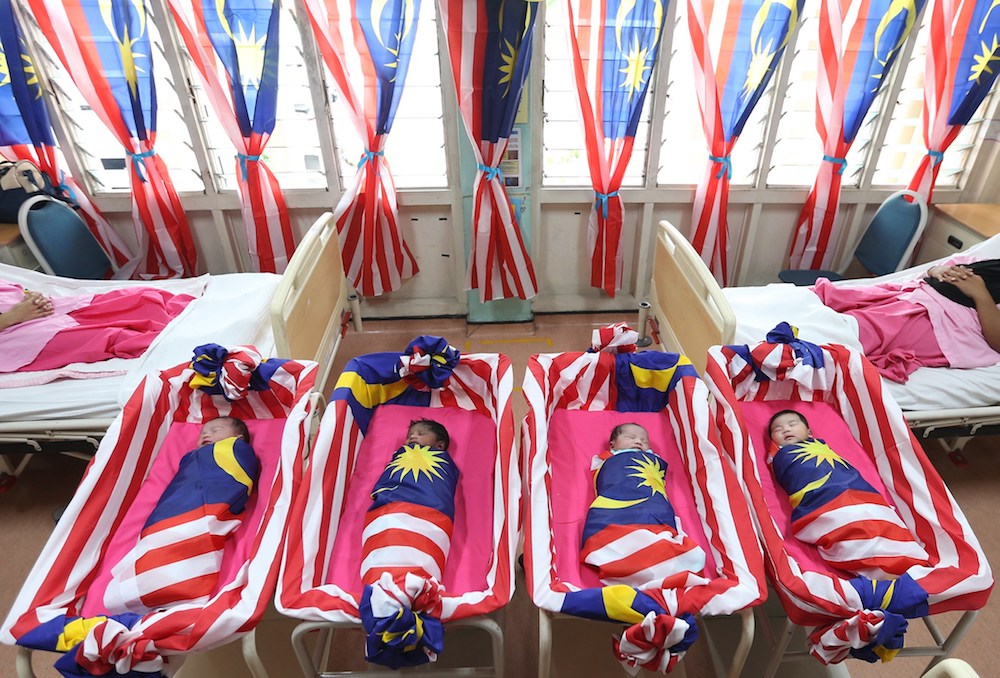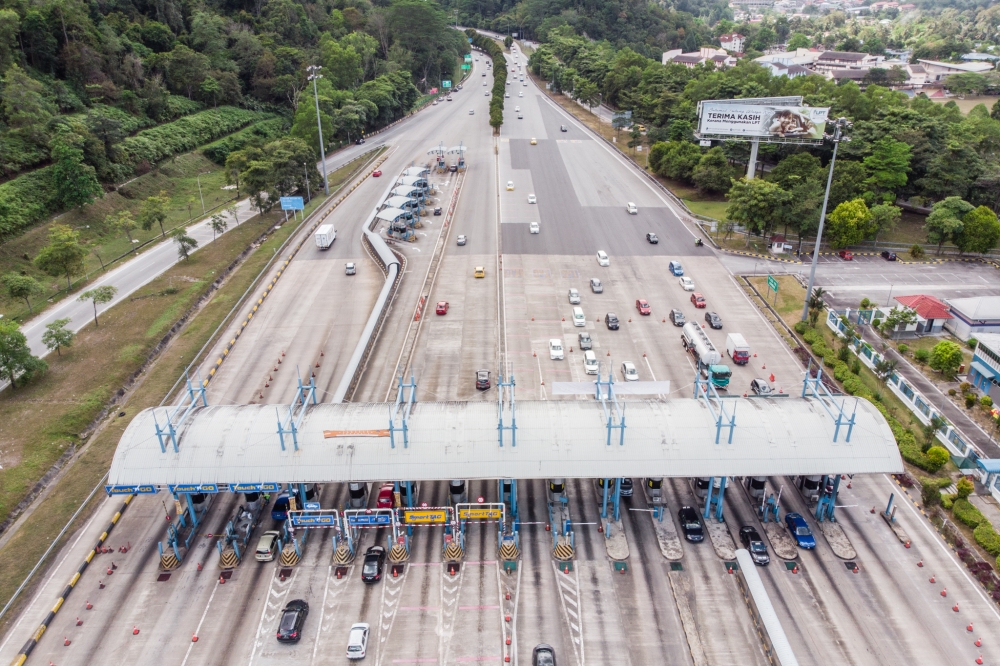KUALA LUMPUR, Nov 3 — The Court of Appeal is set to decide on February 15 next year on the Malaysian government’s appeal against the High Court’s 2019 citizenship recognition for a teenage girl who was born in Perak to a Malaysian father and a Filipino mother.
Born in Perak in November 2006 with a birth certificate stating her status to be non-citizen, the girl’s parents later registered their marriage in Perak in January 2008.
The girl’s journey in her bid to be recognised as a Malaysian citizen had started when she was just slightly more than a year old, with three attempts made by her father over a period of eight years from February 2008 to August 2016 that included years of waiting for the National Registration Department’s (NRD) response.
The Malaysian father’s first citizenship application for the girl on February 20, 2008 was not replied to at all, with the second application on October 13, 2011 then resulting in the receiving of a rejection letter dated December 17, 2012 with no reasons given for why the application was unsuccessful.
The third application made on September 9, 2013 was also turned down almost three years later via a rejection letter dated August 5, 2016 again with no reasons given.
Apart from such efforts, the Malaysian father had also carried out a DNA test, with the Department of Chemistry Malaysia’s July 18, 2014 report confirming that he is the biological father to the child.
Together with his daughter, the father then filed a lawsuit on October 28, 2016 against the latest citizenship application rejection, naming the three respondents in the judicial review as Home Ministry secretary-general, the National Registration Department’s director-general and the government of Malaysia. She would be 10 that year.
The High Court had on May 2, 2019 declared that the girl — who would be 13 that year — is a Malaysian citizen by operation of law under Article 14(1)(b) of the Federal Constitution, and directed for a citizenship certificate and identification card to be issued to her.
On May 27, 2019, the government and the other two respondents filed an appeal against the High Court’s decision.
This meant that the girl was not issued a citizenship certificate and identification card. She will be 15 years old this year.

The appeal hearing
Yesterday, the Court of Appeal heard the government’s appeal, with a key question being examined being the girl’s initial illegitimate birth status as her parents were not married then, and whether the parents’ subsequent marriage which changed her status to be legitimate would enable her to be entitled to Malaysian citizenship under the country’s Federal Constitution.
The Perak-born girl is relying on the Federal Constitution’s Article 14(1)(b), read together with the Constitution’s Second Schedule’s Part II’s Section 1(e).
Article 14(1)(b) states that those who are born after Malaysia was formed and who fulfil any of the conditions in Part II of the Second Schedule are citizens by operation of law or entitled under the law to be Malaysians, while Section 1(e) lays out the condition of being born in Malaysia “who is not born a citizen of any country”.
In objecting to the girl being recognised as being entitled to citizenship, one of the provisions the government is relying on is Section 17 in Part III of the Second Schedule in the Federal Constitution, which provides references to an illegitimate person’s “father” or “parent” or “one of his parents” in the Constitution’s citizenship provisions will be interpreted as referring to the person’s mother.
In other words, the government is arguing that Section 17 means that the girl should follow her non-Malaysian mother’s nationality due to her illegitimate status at birth, despite her having been born in Malaysia.
Senior federal counsel Nur Idayu Amir, who represented the government, cited a Federal Court’s majority decision in May 2021 in the citizenship case of CTEB as being the latest position and also cited legislative history to argue an illegitimate child should follow the mother’s citizenship despite subsequent legitimisation by marriage.
Under the Legitimacy Act’s Section 4, a child would become legitimised by the parents’ subsequent marriage, with the change in status being from the date of marriage or prescribed date, whichever is later. (This provision however applies only to non-Muslims, and would apply to the Perak-born girl’s situation as her parents are non-Muslims.)
The girl’s lawyer Annou Xavier highlighted differences in the Federal Court case cited by the government, noting that the CTEB case was about a different constitutional provision of Section 1(b) and was not dealing with the same Section 1(e) provision in the girl’s case.
Annou also said the Federal Court case involved a child born overseas in the Philippines and having a Filipino passport that resulted in the majority ruling saying citizenship should not be granted, while the girl in this case was born in Malaysia.
Among other things, Annou noted that it was during the citizenship proceedings that the Attorney General’s Chambers had asked his clients to seek for a declaration of legitimacy, adding that this was done in separate proceedings under the Legitimacy Act’s Section 4 and Section 5, and with the High Court on January 9, 2018 had granted the legitimacy order and directed the Registrar-General of Births and Deaths for Malaysia to re-register the girl’s birth as a legitimate child to her biological parents.
Annou argued that this meant Section 17 does not apply to the Perak-born girl’s case.
Annou also highlighted that the girl’s stateless status due to not being a citizen of any country would also mean that she fulfils the Section 1(e) condition to be entitled to Malaysian citizenship.
Annou cited Section 2(3) of the Federal Constitution’s Second Schedule’s Part II, which says a person is to be treated as having at birth any citizenship which he acquires within one year of being born, for the purposes of Section 1(e).
This means the Malaysia-born girl would be considered to be born as a citizen of any country if she obtains such citizenship within a year of her birth in Perak, but Annou said the girl who has been in Malaysia her whole life is stateless: “She has never been anywhere, she doesn’t hold a Philippines passport, she doesn’t hold Philippine citizenship, then Section 2(3) applies.”
Annou argued that the child being born in Malaysia and her father being Malaysian meant she would be entitled to be a Malaysian citizen.
Annou also said the Federal Constitution’s Article 8 which guarantees the right against discrimination meant that there should not be any distinction made between a legitimate child and illegitimate child.
Senior federal counsel Liew Horng Bin responded by arguing among other things that Section 17 should apply for all the Constitution’s citizenship provisions and regardless of whether a child is born in Malaysia or outside of Malaysia.
Annou later responded by saying that Section 1(e) makes no reference at all to “father” or “mother” or parents unlike other citizenship provisions, and is merely about the condition of being born in Malaysia and argued that only the principle of jus soli (citizenship according to birthplace) would be relevant for Section 1(e).
Having heard both sides, the Court of Appeal then fixed February 15, 2022 as the decision date.
The Court of Appeal panel yesterday was chaired by Datuk Seri Kamaludin Md Said, while the two other judges were Datuk Vazeer Alam Mydin Meera and Datuk Gunalan Muniandy.
The girl and her father were also represented by lawyer Larissa Ann Louis, with the girl’s parents also having attended the appeal hearing conducted online via video-conferencing platform Zoom.
Lawyers who held a watching brief for the case were G. Manimagalai for the Bar Council, Tay Kit Hoo for the Human Rights Commission of Malaysia (Suhakam), Denise Lim for Voice of the Children, and Ranee Sreedharan for the Development of Human Resources for Rural Areas (DHRRA) Malaysia, while Yayasan Chow Kit was represented by a representative known as Noor Hasini.



















